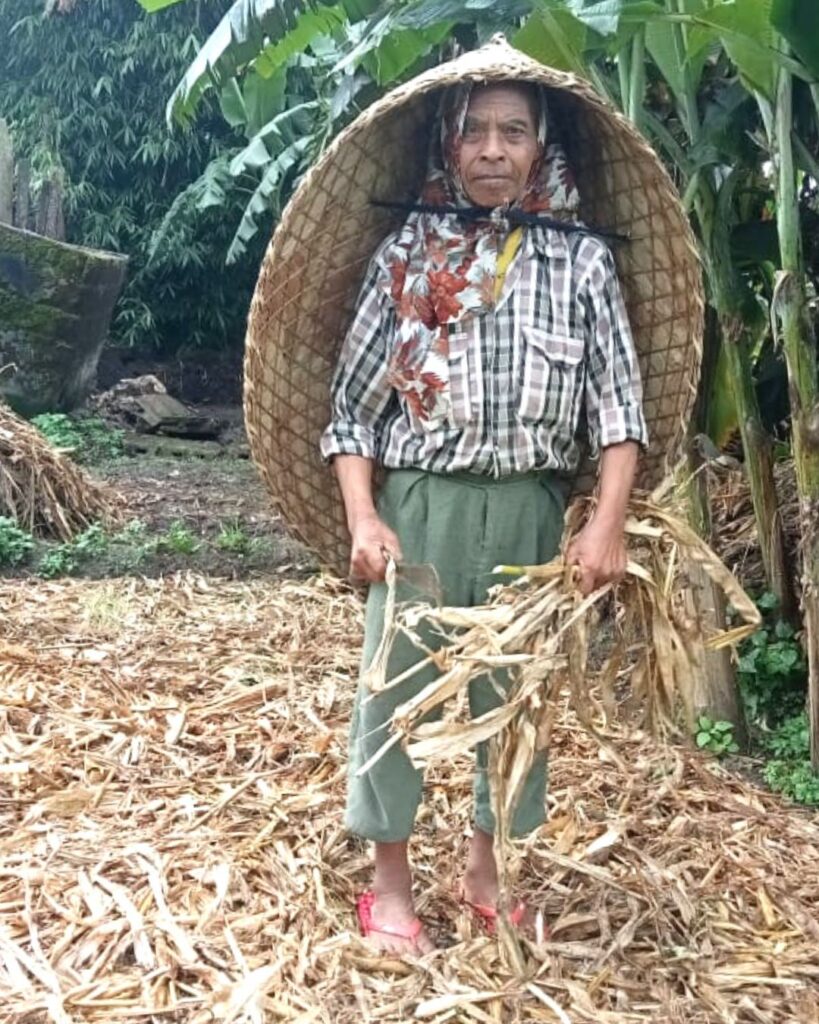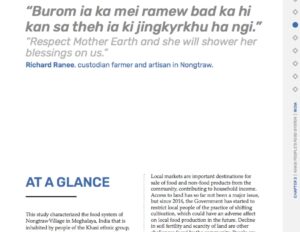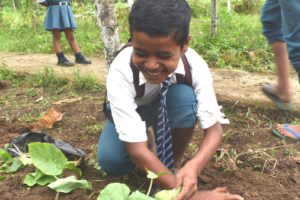Traditional farming was a big part of life in the yesteryears but since it is coming back into practice over the years, it is important to honour the practices of people who have upheld the indigenous culture for the longest time. Bah Bini Suchiang is an 83-year-old farmer from Thadmuthlong village of West Jaintia Hills which is an active village of NESFAS’ ongoing project “Empowering Indigenous Communities through Agroecology Learning Circles (ALCs) for resilient, integrated and innovative natural resource management” which is supported by the MBMA and World Bank. He has been farming for the past 65 years and is still going strong. He has collected immense amounts of knowledge about the process of traditional farming and nurturing several crops such as maize, beans, ginger, turmeric and many fruit varieties.
Bah Bini Suchiang has also been practising composting for over 50 years and he has made it a point to disseminate his knowledge to all the younger generations who have shown interest in the same over the years. He follows some local standard practices and processes to create his compost.

First, a six-foot-deep cavity is dug up in the space in front of the piggery shed, followed by a layer of banana stem and leaf along with dry grass or straw. The second layer of pig dung is put over the hay and straw and stamped on until it becomes tightly incorporated. This is continued until the pig dung reaches a height of one foot. After this, the pig dung is covered with plastic and branches; the process is finalized by covering the compost with tarpaulin.
After about 6 months the compost is ready and effective in improving and enhancing soil quality and crop production; over the years this has proved to be an extremely efficient method and has resulted in a high yield of crops.
This specific composting method is something that only Bah Bini Suchiang practices in his village; the painstaking and time-consuming method is what has probably discouraged other farmers so far. He expressed, “I urge my fellow farmers to take and learn this lesson since this is a way to conserve the method of composting as it is very helpful for the growth of the crops and on the other hand, it acts as a boon for farmers”.



